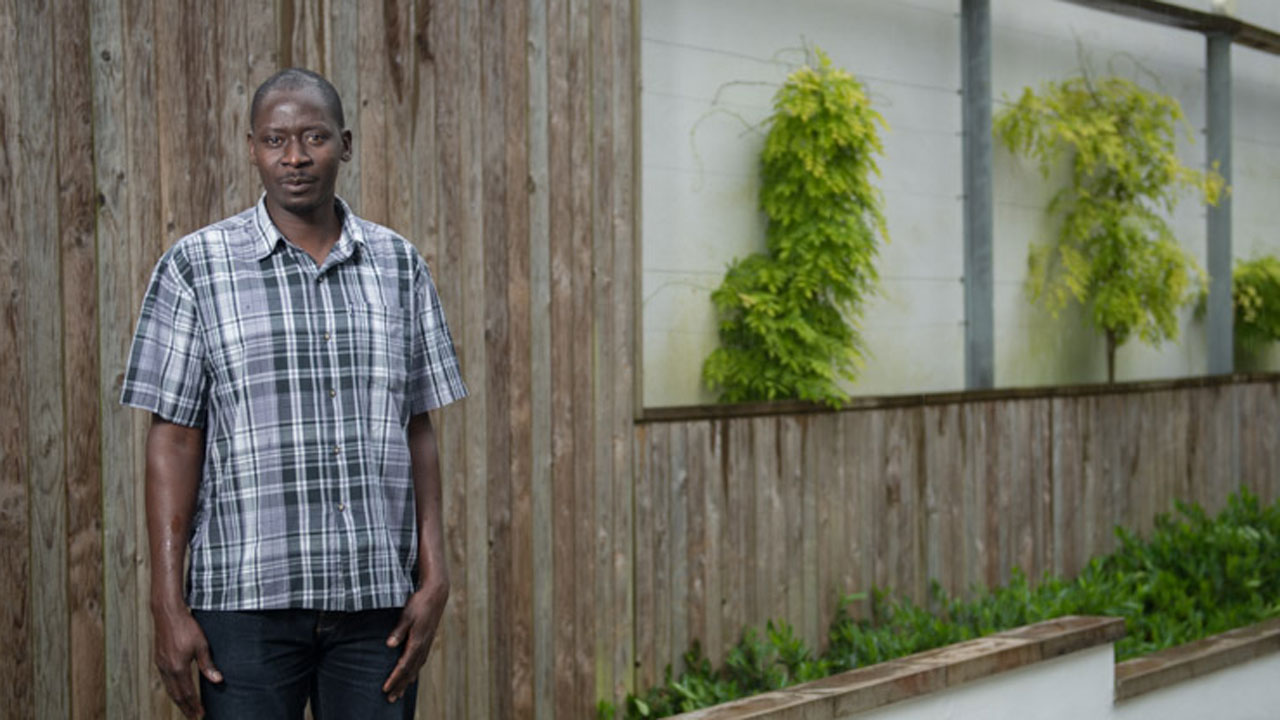Alex Abaca’s goal is to improve food security at home by making cassava crops more sustainable. With assistance from the several Scholarships and a generous Bath alumnus, he graduated with an MSc in Molecular Plant Sciences and a PhD in Biology.
Alex's story:
“I was born in 1979 in Kioga County, Northern Uganda. My father had seven wives and because I am the last born of 38 children, my task was to graze our cattle. It was not until rustlers took away all our cattle that I managed to enrol in school aged nine. Between attending secondary school and taking my A levels, I had to spend several years making bricks, digging and fishing to earn money for my fees. With all these struggles, I was still the best in my class.
By saving some money from teaching, I sat my A level examinations and was admitted to study BSc Agriculture at Makerere University with government sponsorship, which I completed in 2008. Following this I joined the National Agricultural Research Organisation (NARO) as a Crop Agronomist and that is where I stayed until coming to Bath.
Amidst all this, I married my wife Margret in the year 2010. We have three lovely children (two girls and a boy). Margret studied BA Urban and Regional planning but with such a high unemployment rate in Uganda, she is keeping our children at home with no job. I am the only bread winner in my house. God should keep them safe in my absence until I return to continue supporting them again."
Sharing my knowledge to improve food security
"My real interest is agricultural science which I can use to improve life for people in Uganda. I am researching on cassava, the most commonly grown food and considered a poor man’s crop, which grows and stores its roots under the ground. The problem is that after harvest, it only lasts for a few days before it goes bad through Post-harvest Physiological Deterioration (PPD). I am working hard to finding ways to make it last longer and make it easier to transport, trade and keep this valuable food crop.
I am the only graduate in my family and I plan to be the first ever PhD holder in my sub county. There are very few people in Uganda who know about plant pathogens and insect identification using molecular tools. Upon successful completion of my courses, my country will benefit from my experience, which I will share with technicians directly under my supervision. In addition, my courses have taught me critical analysis and proofreading skills that I will use to increase the number of scientific publications and project proposals coming from NARO, placing Uganda at a global level.
Giving back to the community is very important to me so I plan to run Plant Clinics and model farms for free learning in farming communities. I believe strongly that God will provide me with the resource to undertake this mission.”
